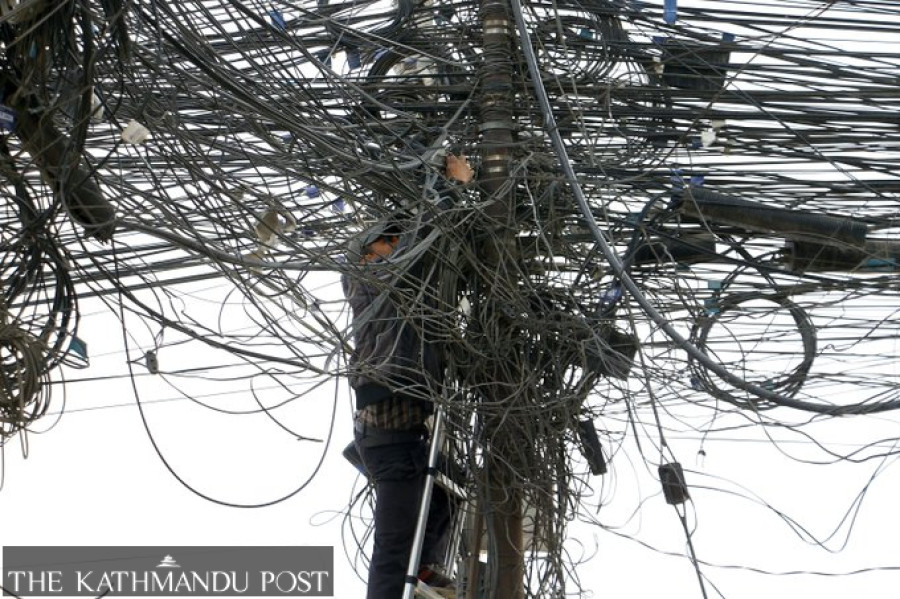Editorial
Service unavailable
On no pretext can the utility and communication service providers create an information abyss.
Nepal Electricity Authority technicians driving around with wire cutters are not an unusual sight. But on Saturday, they were on a different mission in at least a dozen towns and cities across the country as they went around snapping the wires strung on electricity poles by internet and cable television companies. That day, the NEA officials were implementing their warning that they would be punishing internet service providers and cable television operators who have not cleared the dues owed to the authority for using its utility poles. The NEA officials' action was as silly as it could get, for they had failed to fathom the consequences of taking away the common people's rights to communication. The officials leave the wires hanging low, as if they are snares to catch and punish pedestrians.
When the NEA fights with ISPs and cable TV operators, it is the rights of the consumers that become trampled. And that is unacceptable, simply because the internet is a tool of communication and forms part of the basic rights of consumers, and the same cannot be taken away. This is especially so when the consumers, who have paid their fees, are not at fault. While it claims that it has no option but to cut the cables of ISPs that default, it failed in gauging the consequences of taking as drastic a step as keeping citizens in the dark.
There is no denying that the ISPs and cable TV operators have been adamant, even reticent, when it comes to paying the rent they owe to the state-owned power authority. If they are providing services to customers for a fee, then they should not run away when it comes to paying for services provided by a third party. On their part, the ISPs and cable TV operators claim that the revised rental charges imposed by the NEA are extremely high, and that if they pay the revised charges, the cost of internet services shoots up. Since they are not in a position to hike the fees as per the restrictions put by the Nepal Telecommunications Authority, they claim they have little option but to defy the directives of the NEA. But refusing to pay the charges for the wires tied to the electricity poles is no solution. Snapping the cables is no solution.
The NEA has stopped its hatchet work for the time being, to the relief of ISPs and internet and cable TV companies. The NEA and the ISPs should find a long-term solution to the problem. No matter how they solve their problem, they must ensure that the internet and cable services being provided to customers are not interrupted. Last week, NEA Managing Director Kulman Ghising proposed 96 core fibre optic cable wires that allow common sharing, reduction of costs and riddance from the tangling of multiple wires on the same pole. If they sit together and engage in a meaningful conversation, the NEA and the defaulting service providers can certainly come up with more solutions than the problem at hand. But they should first have the humility to communicate with each other and attempt to solve the problem. On no pretext can they continue to remain irresponsible and leave the citizens fall into an information abyss.




 13.12°C Kathmandu
13.12°C Kathmandu














